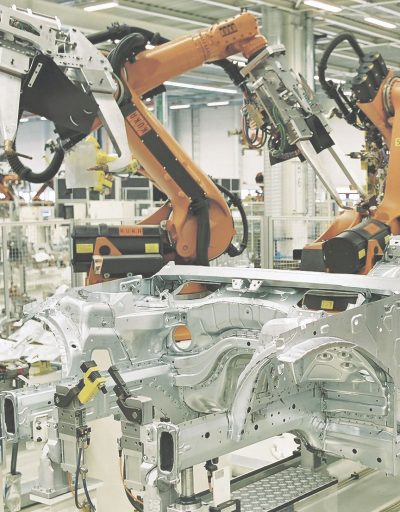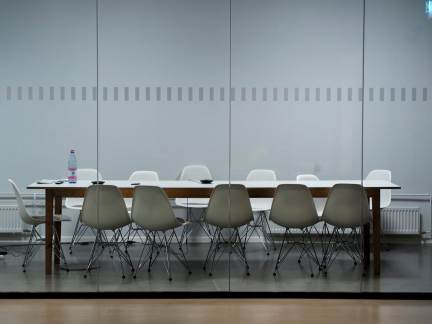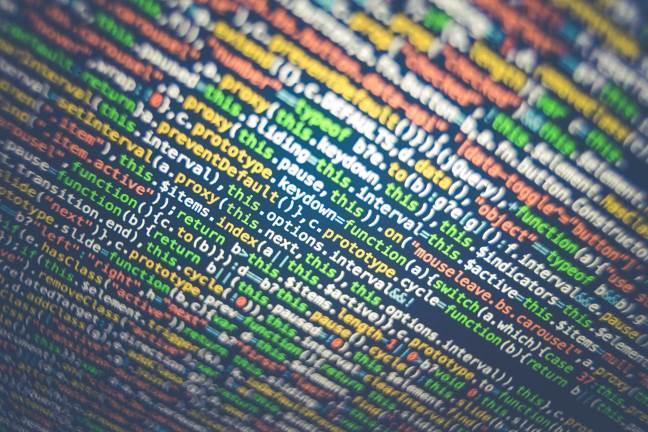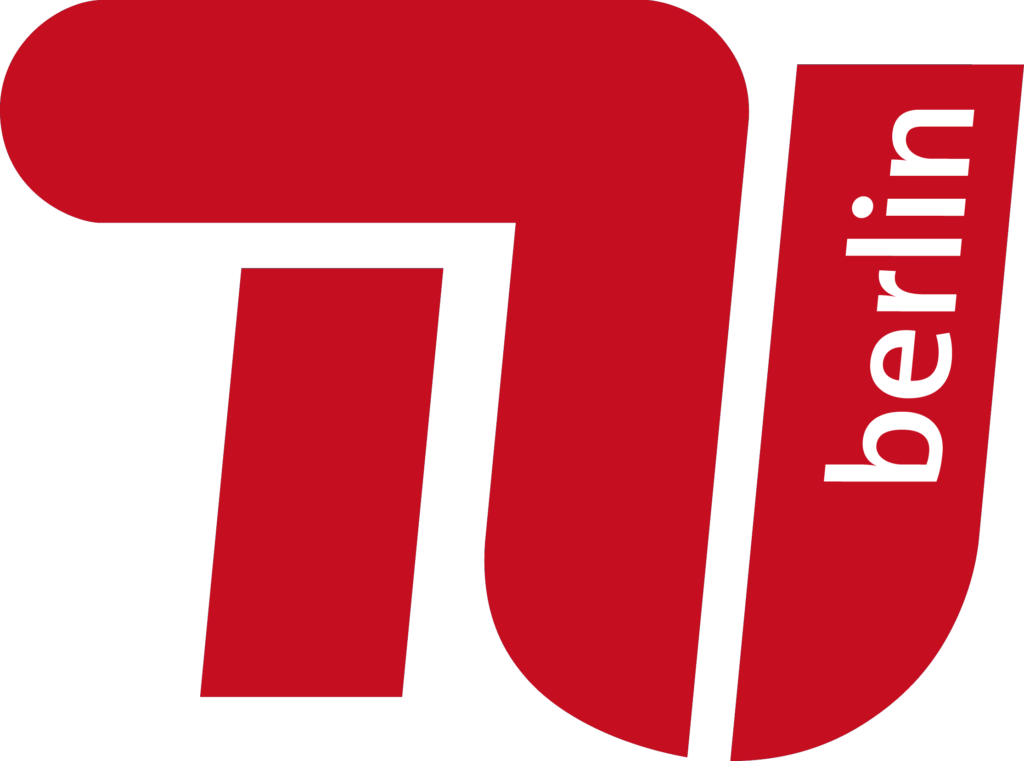German Standardisation
Panel
The German Standardisation Panel (DNP) is an annual survey that collects data on standardization activities of companies.


News
Wir feiern 10 Jahre Deutsches Normungspanel
17. August 2022
Am 11. Oktober 2022 feiern DIN, DKE und TU das 10-jährige Bestehen des Deutschen Normungspanels. Nach einem Vortrag von Prof. Dr. Knut Blind, dem Leiter des Fachgebiets für Innovationsökonomie der TU Berlin und Initiator des DNPs, diskutieren Normungsexpertinnen über die Zukunft der Normung.
Am Tag danach, dem 12. Oktober 2022, findet die DIN/DKE Innovationskonferenz zum Thema „Stadt der Zukunft – wie kann die grüne und digitale Transformation gelingen?“ statt. Es soll unter anderem darum gehen, wie Städte den Klimawandel mithilfe von Normen und Standards bewältigen können.
Kostenlose Registrierung zu den Veranstaltungen bis zum 30. September unter: www.din-veranstaltungen.de. (Login-Code: inno22)
DNP 2022: Normen, Normung und Klimawandel
24. Mai 2022
Heute wurden die Ergebnisse der 10. Befragungsrunde des Deutschen Normungspanels im Rahmen eines digitalen Workshops gemeinsam mit dem DIN, DKE und den BMWK vor 100 Teilnehmenden aus der Industrie vorgestellt und diskutiert. Im Mittelpunkt der Befragung stehen die Themen Normen, Normung und dem Klimawandel. Der aktuelle Ergebnisbericht steht ab sofort zum Download bereit.
Neue wissenschaftliche Leitung des DNP
7. Januar 2022
Seit dem ersten Januar 2022 hat das Deutsche Normungspanel eine neue wissenschaftliche Leitung. Frau Luzie Kromer übernahm die Aufgabe von Herrn Philipp Heß, der nun in beratender Funktion zur Seite steht.

The German
Standardisation Panel
The German Standardisation Panel (DNP) is a survey to collect data on the standardisation activities of companies on an annual basis.
Since 2019, the project is directly financed and supported by DIN and DKE. It is conducted by the Chair of Innovation Economics at Technische Universität Berlin.
Mission
The time span between the first emergence of an innovative idea and the successful and comprehensive penetration of a market by this innovation can be long. As innovations are effected by an array of business internal and external factors, long-term surveys in the sense of a repeated gathering of company specific information are necessary for innovation research. Subsequently, on behalf of the European Commission, an innovation survey was established in the early nineties in the member states of the European Union. The data gathered in Germany exists in the form of a panel, i.e. the same businesses are repeatedly questioned about their innovation activities and other innovation-related topics.
This panel data represents the most important data source for business-related innovation research and has led to the development of a vibrant and growing innovation research community.
Furthermore, this data source is used by the European Commission and member state governments to identify necessary innovation policies and to legitimise and evaluate future policy measures.
An equivalent to this data source neither exists at a national nor at an international level in the field of standardization. Regardless of the progress made, standardization research has therefore received less public attention than innovation research. Despite comprehensive theoretical work, this is primarily because of the fact that only little comprehensive empirical survey data suited for the solving of central problems of standardization research is available. This shall be remedied by the establishment of the “German Standardization Panel”.
Goals
The data generated by the DNP forms the basis for scientific research on the standardization activities of companies, the implementation of standards, and the effects of standards on entrepreneurial success. The results of the survey can also be used to develop strategies for the involvement in European and international standardization, as well as to articulate national business interests, among others, vis-à-vis the European Commission.
An additional goal of the German Standardization Panel is to address current standardization policy issues as a means to assess any initiatives taken. The last survey waves addressed the role that standards and standardization play in trade with the United States and China, as well as the consequences of digitization and digital networking on formal and informal standardization. The data thereby facilitates the identification of new trends.
Finally, the panel raises awareness of the importance of standardization for businesses which have not yet used formal standards or been active in standards, thus motivating and encouraging increased participation. This requires a wide dissemination of the survey results via reports such as this one. The DNP thereby helps to achieve the objectives of standardization research, policy and promotion.

Heuristic model
The German Standardization Panel is conceived in a way to consider both long-term observations and current trends. Therefore, the annual survey is divided into two sections: core questions and questions related to a specific subject. The core questionnaire is based on the following heuristic model (see Image). This model is comprehensive, allowing for the integration of a broad array of topics and questions. It also illustrates the multidimensional links between participation in the standardization process, the implementation of formal standards and corporate success.

The effect which standards have on the “success” of organizations and their determinants are considered in different ways, e.g. as direct involvement in the standardization process or as the implementation of existing standards. Standardization activities are characterized by the nature and scope of the work itself, e.g. time required, necessary human resources, participation in standards committees, etc. With regard to the implementation of standards, various dimensions of costs and benefits are determined. Apart from these aspects, which mainly concern the standardization process itself and the implementation of standards, the DNP’s long term goal is to assess the impact of standardization, as well as the application of standards on business success.
A number of questions can be asked in this context: Does participation in the standardization process increase the success achieved through the implementation of formal standards? Does standardization have a direct impact on corporate success or is the impact indirect, e.g. observable via networking opportunities? Which dimensions of success are influenced by standardization? Do the insights gained apply mainly to those who actively participated in the development of a given standards, or is there a more general learning process? What does this learning process look like? How do company-specific characteristics influence company success through standardization work? Does the impact of standards work vary depending on sector or company size? These and other questions can only be satisfactorily answered with suitable statistical methods.
Surveys
special sections 2012 – 2023
Standardisation and research & development and European standardisation
Research is an important basis for standardisation and therefore innovation. Standards are also increasingly being used as outputs of research projects, especially in projects carried out under Horizon 2020. But how important is research for standardisation and what are the advantages and disadvantages of research as an input into standardisation? What is the right way to incorporate research results into standardisation development? And how are standards that have already been formulated based on research results evaluated?
European standards have long been particularly important for German standardisation experts. In the second special section 2023, the German Standardisation Panel asks questions about the European standardisation strategy. The aim is to find out how the efforts of the European standardisation organisations are perceived, particularly regarding the implementation of the strategy in connection with environmental protection and digitalisation.

Access to affordable and clean energy
Without energy and electricity, life, as we live it today, would grind to a halt. Standards ensure that everything related to energy in our everyday lives functions reliably and safely – from the light switch at home to almost all processes in industrial production. As a result, standards play a decisive role in access to energy, the expansion of renewable energies, and increased energy efficiency.
But are standards already fulfilling their full potential in expanding renewable energies and increasing energy efficiency? How much do standards help to ensure safe and reliable access to energy? Which aspects of the standardization process can be improved to address the energy transition even more?

Standardization and climate change
Combating climate change and managing the impacts of climate change are two complementary strategies, both of which can benefit from the targeted use of standards.
On the one hand, standards can contribute to climate change mitigation by spreading the voluntary implementation of climate-friendly rules in industry and society. At the same time, standards must respond to requirements that have changed as a result of climate change.
This topic has been present in the standards-setting organizations for some time. There is an explicit commitment by standards organizations to combating climate change, for example through ISO’s London Declaration.
But are standards already fulfilling their full potential in combating and managing climate change? How strong is the role of standardization here, anyway? Which aspects of the standardization process can possibly be improved to address climate change even more strongly?

Effects of the corona pandemic on standardization
The corona pandemic poses special challenges for the world of standardization.
At the same time, standards, as part of the quality infrastructure, can possibly help to better manage the crisis.
To what extent are companies affected by corona in standardization? Which supporting standardization and certification services are used? How does the Corona pandemic influence the digitization of standardization and digitization in participating companies in general?

Standards and SDGs: Goals for sustainable development
In 2012, the United Nations member states agreed on 17 goals for sustainable development on an economic, ecological and social level (so-called „Sustainable Development Goals“, SDGs). These are to be pursued over a period of 15 years from 2016 to 2030.
These goals address global issues that are critically affected by practical implementations on company level. It therefore seems self-evident that (formal) standards play a central role in pursuing the Sustainable Development Goals.
Do standards support companies in pursuing sustainable development goals? What role do standards already play, and where can standardization play an even greater role?

Standards & public law
Based on the New Approach and the New Legislative Framework, EU guidelines and regulations can set essential requirements that are of public interest and leave the definition of technical solutions to harmonized standards.
When manufacturers apply these harmonized standards, conformity with the requirements of guidelines or regulations is presumed. Standards however remain voluntary recommendations, as manufacturers are free to diverge from them and document conformity in other ways.
There are also cases where national law references (formal) standards (e.g. the German product safety law). As on EU level, the application of referenced standards is mostly voluntary, but applicants can benefit from the presumption of conformity.
Against this background, the special section deals with the difference in perception and participation of standards / standardization and public law / legislation.

future-proof digital standards
Nowadays, standards are being published as digital documents. They do however still largely depend on the classical paper format and will be affected by further digital transformation. New requirements will be raised regarding the digital publishing of their contents. New usage scenarios, like representations that can adapt to a variety of digital devices, usage in mobile contexts or an automated way of processing standards‘ contents, are drivers for the continued development of future-proof digital standards.
The 2017 special part referred to those usage scenarios and requirements on the one hand, and, on the other hand, to the role of digital formats in the standardisation process.

industry 4.0
„Industry 4.0“ is one of the most important topics of digitalization, describing the digitalization of industrial production by integration with modern information and communication technology. Formal standards constitute the required foundation to the development of special linked digital systems that enable the develop of intelligent production processes.
The special section therefore investigates current developments and future standardization needs for Industry 4.0.

digitally integrated economy
The fourth round of the German Standardization Panel with the special section addressing the implications of the digitally integrated economy for standardization is completed.
The results have been validated and first trends have been confirmed.
Through linkage of the last three waves, a panel data set was generated, which contains 1,200 firms and industry representatives. It provides new insights into the development of standardization activities of participating companies.

trade with China
The third wave of the German Standardization Panel’s survey was launched on 14 October 2014, World Standards Day. The participation of more than 2,000 experts indicates sustained acceptance of the questionnaire. For the first time, this year it is possible to link the data from the second and the third wave. The unique dataset, which consists of more than 500 companies, provides new insights into changes in the standardization behavior as well as the implementation of standards of German firms over time.
On 28 April 2015 the participants of the third round of the German Standardization Panel in 2014 were the first to be presented with the results of the survey in the premises of DIN (German Institute for Standardization). Special emphasis was given to the role of standards for trade with the People’s Republic of China in comparison to trade with the United States. Detailed results are published in form of a Indicator Report.

TTIP
After the completion of the second round of the German Standardization Panel’s survey in late 2013, the results were analysed and presented during a workshop in the DIN (German Institute for Standardization). The results were thereby initially presented to the survey participants and later made available to the general public via the „DIN-Mitteilungen“ magazine.
In addition, the standardising companies taking part in the Mannheim Innovation Panel were identified and compared with businesses not active in standardisation.
In 2018, further results were published in the Journal of Policy Modeling.

Pilot
On 3. June 2013 the results of the first round of the German Standardization Panel survey were presented in the DIN Berlin. The presentation was attended by business and scientific representatives. Matthias Max from the Federal Ministry for Economic Affairs and Technology pointed out exactly how important not only the instrument of standardisation is for the opening of markets, the support of Legislation or technology transfer but also the German Standardization Panel whose results can locate potential for improvement in standardisation work. After the introduction of the German Society for the Promotion of Research on Standardization e.V. (FNS) – which supports and consults the Standardization Panel – the results of the first round of the survey, the structure of the second questionnaire and the publication of the results were discussed with the participants.

Results

The German Standardisation Panel
Current indicator report 2023: „Standards and the access to affordable and clean energy“
- Indicator report 2023 (standards and the access to affordable and clean energy) (1 MB)
- Indikatorenbericht 2023 (Normung und der Zugang zu sauberer und bezahlbarer Energie) (1 MB)
- Indicator Report 2022 (Standards and Climate Change) (1 MB)
- Indikatorenbericht 2022 (Normen, Normung und Klimawandel) (1 MB)
- Indicator Report 2021 (effect of coronavirus pandemic on standardization) (2 MB)
- Indikatorenbericht 2021 (Auswirkungen der Corona-Pandemie) (2 MB)
- Indicator Report 2020 (sustainable development goals) (2 MB)
- Indikatorenbericht 2020 (Nachhaltigkeitsziele) (2 MB)
- Indicator Report 2019 (standards and public law) (1 MB)
- Indikatorenbericht 2019 (Normen im öffentlichen Recht) (2 MB)
- Indikatorenbericht 2018 (Digitale Normen) (1 MB)
- Indikatorenbericht 2017 (Industrie 4.0) (840 kB)
- Indicator Report 2017 (Industry 4.0) (2 MB)
- Indiktorenbericht 2016 (Digitalisierung) (906 kB)
- Indicator Report 2016 (Digitization) (780 kB)
- Indikatorenbericht 2015 (Handel mit China) (2 MB)
- Indicator Report 2015 (Trade with China) (2 MB)
- Indikatorenbericht 2014 (TTIP) (646 kB)
- Indicator Report 2014 (TTIP) (360 kB)
- Indicator Report 2013 (pilot) (836 kB)
- Indikatorenbericht 2013 (Pilotbefragung) (313 kB)
- Fragebogen 2023 (1 MB)
- Questionnaire 2023 (1 MB)
- Fragebogen 2022 (6 MB)
- Questionnaire 2022 (6 MB)
- Fragebogen 2021 (4 MB)
- Questionnaire 2021 (4 MB)
- Questionnaire 2020 (4 MB)
- Fragebogen 2020 (4 MB)
- Fragebogen 2019 (4 MB)
- Fragebogen 2018 (2 MB)
- Fragebogen 2017 (1 MB)
- Fragebogen 2016 (8 MB)
- Fragebogen 2015 (3 MB)
- Fragebogen 2014 (4 MB)
- Fragebogen 2013 (766 kB)
- Fragebogen 2012 (359 kB)
- Agenda DNP Ergebnispräsentation 2023 (131 kB)
- Ergebnispräsentation DNP 2022 (752 kB)
- Programm DNP 2022 (108 kB)
- Präsentation DNP Mai 2021 (1 MB)
- Programm DNP 2021 (216 kB)
- DIN-Mitteilungen 2020 – Nachhaltigkeit und Normung (264 kB)
- Präsentation DNP Mai 2020 (2 MB)
- Programm DNP 2020 (118 kB)
- Präsentation DNP BMWi Mai 2019 (2 MB)
- Programm DNP 2019 (120 kB)
- Präsentation Homann 2017 FNS (336 kB)
- Präsentation Haimo Huhle 2017 (2 MB)
- Präsentation Dirk Slama – Referenzarchitekturen für das Industrial Internet (3 MB)
- DNP Programm 2018 (212 kB)
- DIN-Mitteilungsartikel zur Werknormung (281 kB)
- DIN-Mitteilungen Juni 2018 (220 kB)
- Ergebnispräsentation DNP 2017 (2 MB)
- Agenda Workshop 2017 (337 kB)
- DIN-Mitteilung Normungspanel 2016 (477 kB)
- Agenda Workshop 2016 (143 kB)
- Folien des Workshops 2016 (2 MB)
- DIN-Mitteilung Vergeleichsanalyse zweite und dritte Welle (599 kB)
- DIN-Mitteilung Spezialteil zu Digitalisierung (669 kB)
- Folien des Workshops 2015 (2 MB)
- DIN-Mitteilung Spezialteil China – USA (599 kB)
- DIN Mitteilung Normungspanel 2015 (691 kB)
- Folien des Workshops 2014 (730 kB)
- DIN-Mitteilungsartikel zum TTIP (646 kB)
- DIN-Mitteilungsartikel Innovative Normer (240 kB)
- Normungspanel Umfrageergebnisse 2013 (443 kB)
- Blind, Knut; Müller, Jo-Ann (2019): The role of standards in the policy debate on the EU-US trade agreement. In: Journal of Policy Modeling 41 (1), S. 21–38. DOI: 10.1016/j.jpolmod.2018.09.006. https://www.sciencedirect.com/science/article/pii/S0161893818301509
- Heß, Philipp (2018): The German Standardization Panel: A look back and presentation of this year’s results. In: Proceedings of the 23rd EURAS Conference. EURAS contributions to standardization research.
- Müller, Jo-Ann (2016): Integration of the Fragmented Value Chain and the Application of Company Standards: Do Corporate Groups Standardize More? In: Proceedings of the 21st EURAS Conference. EURAS contributions to standardization research.
- Blind, Knut; Müller, Jo-Ann (2015): Harmonization vs. Mutual recognition of Standards within the TTIP – Exploring Factors that Influence Firms‘ Preferences. Evidence from the German Standardization Panel. In: Proceedings of the 20th EURAS Conference. EURAS contributions to standardization research.
- Blind, Knut; Großmann, Anne-Marie (2014): An Exploratory Analysis of Company Standards – Evidence from the German Standardization Panel. In: Proceedings of the 19th EURAS Conference. EURAS contributions to standardization research.
- Blind, Knut; Rauber, Julius (2013): Standardization Strategies of Innovative German companies – The Relation Between Implementing and Developing Standards. In: Proceedings of the 18th EURAS Conference. EURAS contributions to standardization research.
Lorem ipsum dolor sit amet, consectetur adipiscing elit. Ut elit tellus, luctus nec ullamcorper mattis, pulvinar dapibus leo.
contact
address
Technische Universität Berlin
Fachgebiet Innovationsökonomie
Prof. Dr. Knut Blind
Sekretariat H47
Tel.: +49(0)30 314 – 76670
Fax.: +49(0)30 314 – 76628
Disclaimer of liability:
The Department of Innovation Economics of the TU Berlin endeavours to provide correct and complete information on this website and to examine and update it regularly. However, no liability or guarantee can be assumed for the topicality, correctness and completeness of the information provided. This also applies to all links to which this website may refer directly or indirectly. The department accepts no responsibility for the content of a page accessed via such a link.
